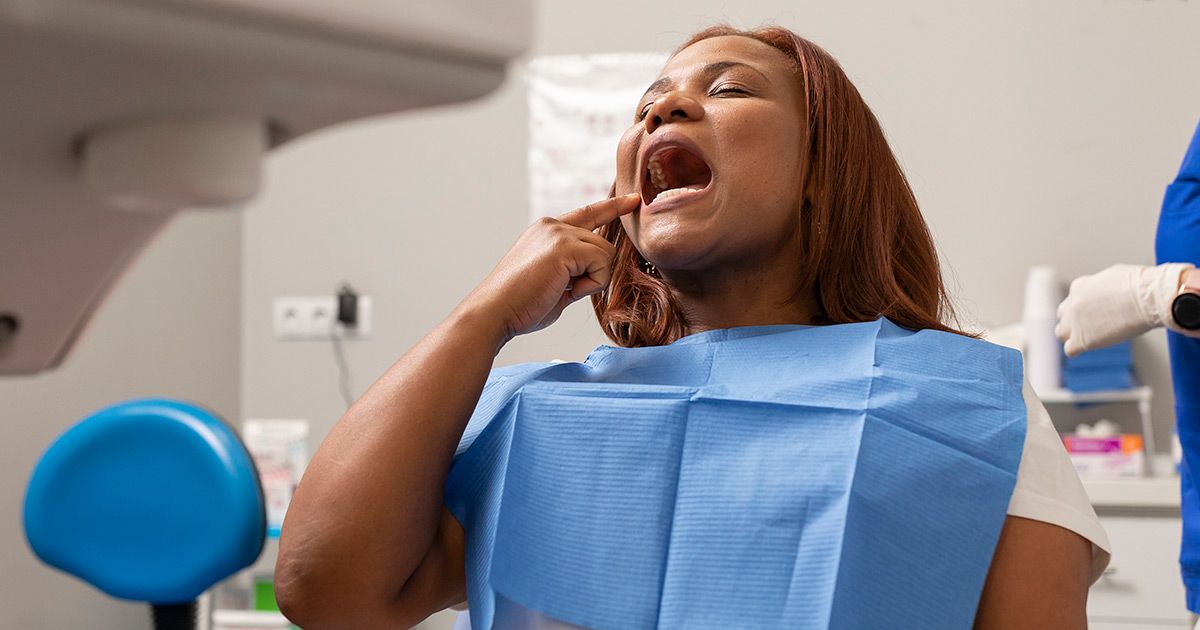What to Do in a Dental Emergency in Laurel, MD
If you're in a dental emergency, contact a local dentist immediately. Learn about finding your best option in Laurel, MD.
Dental emergencies are far more common than you might think. Research suggests that Americans make around 2 million visits to the emergency room for dental pain each year, with incidents like falls, accidents, and other forms of trauma being the most common culprits. For many of us, the first impulse is to seek care at a hospital after any damaging event!
However, if you're experiencing a dental emergency, you're often better off visiting your regular dentist instead of the ER. Your dentist can deal with oral trauma much more effectively than a doctor can, and they can also help you through any restorative treatments in the aftermath.
Let's take a look at a few common dental emergencies our clinic sees, how to tell when to visit a dentist instead of the hospital, and what to do if you're dealing with a dental emergency.
What Is a Dental Emergency?
It's not always easy to tell when you're dealing with a dental emergency. When do you need to find a dentist as soon as possible, and when can you wait a few days for a normal appointment?
If you're experiencing any of the following issues, make an appointment as soon as possible:
- Loose permanent tooth
- Missing tooth
- Chipped, broken, or fractured tooth
- Serious and persistent toothache
- Lost or broken dental restoration
- Dental abscess (a painful blister around a tooth)
Visiting an emergency dentist can help you address these issues and treat your pain before it worsens.
On the other hand, there are a few common situations that are not emergencies and can often wait for treatment:
- Mild toothache or sudden sensitivity
- Chipped teeth
- Mouth sores
- Small cuts around the teeth
- Broken braces
- Small object stuck between the teeth
If you suspect that something is wrong and aren't sure what to do, you should still contact your regular dentist. It's a good idea to see a dentist after going through any kind of dental trauma, even if you don't feel any pain. Through imaging and an oral exam, your dentist can make sure no underlying issues have appeared because of your fall or accident.
Emergency Dentist vs. Emergency Room
Keep in mind that dental services can't tackle all types of emergencies. In some cases, you will be better off going to the hospital right away.
If you've experienced serious trauma to the face, jaw, or mouth, visit the emergency room. This trauma can include things like serious cuts, major swelling, or broken bones. If you're having trouble speaking, eating, or breathing due to the inflammation, go to the hospital.
Though a local hospital won't be able to address issues related to your teeth, they should be your first stop if you're dealing with anything life-threatening.
You can also visit the hospital if you can't get an appointment with
emergency dentists in Laurel, MD. Though the doctors there won't have dental expertise, the ER department will still be able to address things like major infections, swelling, or serious pain. This can help you manage your symptoms until you can find an emergency dentist.
What to Do in a Dental Emergency
Though most emergency dentists will be able to offer a same-day appointment to treat you, you may still have to wait your turn. What should you do in the meantime?
Missing Tooth
If you've knocked a tooth, stay calm: you may be able to start fixing the problem yourself. As long as a missing tooth is replaced within about an hour, it will often settle back in place.
Pick the tooth up by the crown, never the root, and gently rinse it with water. Try to place the tooth back in its socket. If you can't do so, place it in a cup with a bit of milk covering it and bring it to your dentist, who may be able to preserve it.
Cracked Tooth
The case is the same with a cracked tooth as a missing tooth, though you won't be able to replace it without a dentist's help. Instead, just save the missing piece(s) in a cup with milk.
If there are any broken fragments of tooth still in your gums, gently rinse the area with warm water to remove any debris. If you're bleeding, press a bit of gauze against the area to stop it. Keeping the gauze there can also prevent any sharp edges of the tooth from irritating the inside of your mouth.
Severe Tooth Pain
For a toothache, your main priority should be managing the pain and bringing down any swelling.
Start by brushing your teeth, rinsing your mouth, and flossing. The goal is to dislodge anything that may be causing you pain.
Use a cold compress to help with the pain, but be sure to press it against the outside of your mouth, not your teeth or gums. Don't leave this on your mouth for more than 15 minutes at a time.
You can also use over-the-counter pain relievers, but try to stick with options that aren't blood thinners, as this can cause complications during any common procedures your dentist needs to do. Tylenol is often a safe bet, but you can check with your dentist to be sure.
Dental Abscess
If you have a pimple-like infection around one of your teeth, you may have an abscess. Try not to touch this area, and don't try to "pop" the pocket of pus. Instead,
rinse with salt water, and follow the steps above for a toothache if you have any pain.
Get Help With Your Dental Emergency
No one should have to deal with a dental emergency alone. Dental trauma and pain can be frustrating and stressful, but there's plenty you can do to keep your symptoms under control until you can get an appointment with a dentist.
If you're struggling with a dental emergency in Laurel, MD, we're here to help!
Garland K. Davis, DDS Family Dentistry offers free exams and X-rays during your emergency visit. Our focus is always on providing compassionate care and fast pain relief. To make an appointment, call (301) 490-2900 now or
contact us online.
Business Hours
- Mon - Thu
- -
- Friday
- -
- Sat - Sun
- Closed
All Rights Reserved | Garland K. Davis, DDS
Website designed and maintained by Xpress, INC

